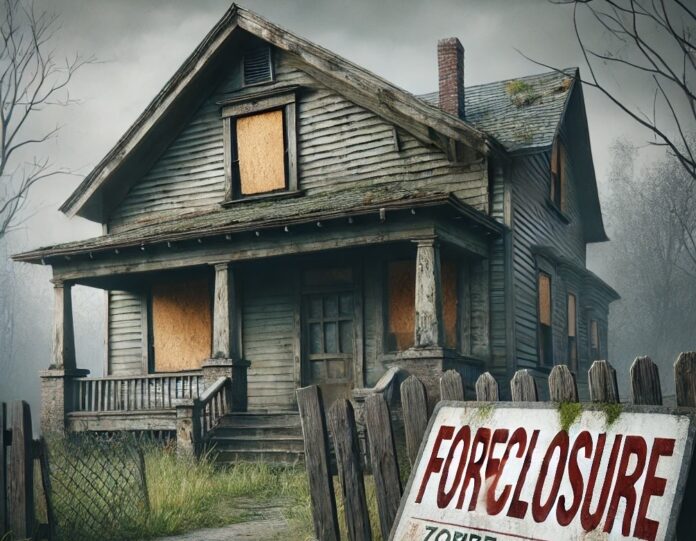If you’ve ever heard the term zombie foreclosure and pictured an abandoned house haunted by the undead, you’re not too far off—well, metaphorically. Zombie foreclosures are a real estate phenomenon where a home is left in a kind of limbo, neither fully alive nor completely dead. Here’s a simple breakdown to help you understand what it means and why it happens.
The Basics: What Is a Zombie Foreclosure?
A zombie foreclosure happens when a homeowner moves out of their property after being notified that the foreclosure process has begun—but here’s the catch: the bank or lender never actually completes the foreclosure. This leaves the house in a sort of no-man’s-land, still legally owned by the original homeowner but abandoned and neglected.
It’s like the homeowner thought the house was dead and gone, but legally, it’s still alive and lurking.
How Does It Happen?
Zombie foreclosures typically happen due to a breakdown in communication or misunderstanding between the homeowner and the bank. Here’s how it unfolds:
1. Foreclosure Notice: The homeowner is notified that they’ve defaulted on their mortgage and the bank intends to foreclose.
2. Homeowner Moves Out: Assuming the foreclosure is inevitable, the homeowner vacates the property, often to avoid dealing with the stress or embarrassment.
3. Foreclosure Is Abandoned: For various reasons, the bank decides not to complete the foreclosure process—perhaps because the home’s value has dropped, or the cost of foreclosing exceeds the potential profit.
4. Zombie Property Is Born: The house is left in limbo, legally still in the homeowner’s name but abandoned and often falling into disrepair.
Why Are Zombie Foreclosures a Problem?
Zombie foreclosures are bad news for everyone involved:
• For Homeowners: Many homeowners don’t realize they’re still legally responsible for the abandoned property. That means they’re on the hook for property taxes, maintenance costs, and even fines for code violations if the property becomes rundown.
• For Neighborhoods: An abandoned house can become an eyesore, lowering property values and attracting crime or vandalism.
• For Banks: While banks may think they’re saving money by not foreclosing, zombie properties can backfire. They may eventually lose even more value or face legal issues tied to neglect.
How Can You Avoid a Zombie Foreclosure?
If you’re facing foreclosure, there are steps you can take to avoid falling into this spooky situation:
1. Stay Informed: Don’t assume the foreclosure process is complete just because you’ve moved out. Verify with the bank or lender.
2. Work with the Bank: Contact your lender to explore options like loan modifications, short sales, or deed-in-lieu agreements.
3. Consult an Attorney: A foreclosure attorney can help you navigate the process and protect your rights.
4. Check the Records: Even after you’ve moved out, periodically check public records to confirm the foreclosure has been completed.
What Should You Do If You Find Out You’re in a Zombie Foreclosure?
If you discover you’re still legally tied to an abandoned property, don’t panic. Here’s what you can do:
• Contact the Bank: Ask if they intend to complete the foreclosure. If not, find out why.
• Seek Legal Advice: A real estate attorney can help you understand your options and obligations.
• Reach Out to Local Authorities: Some cities have programs to help homeowners deal with abandoned properties.
Final Thoughts
Zombie foreclosures can feel like a nightmare, but with the right knowledge and proactive steps, you can protect yourself from getting trapped in one. The key is to stay informed and act quickly if you suspect your foreclosure has turned into a zombie situation. After all, it’s better to deal with the paperwork now than let an undead property come back to haunt you later!




